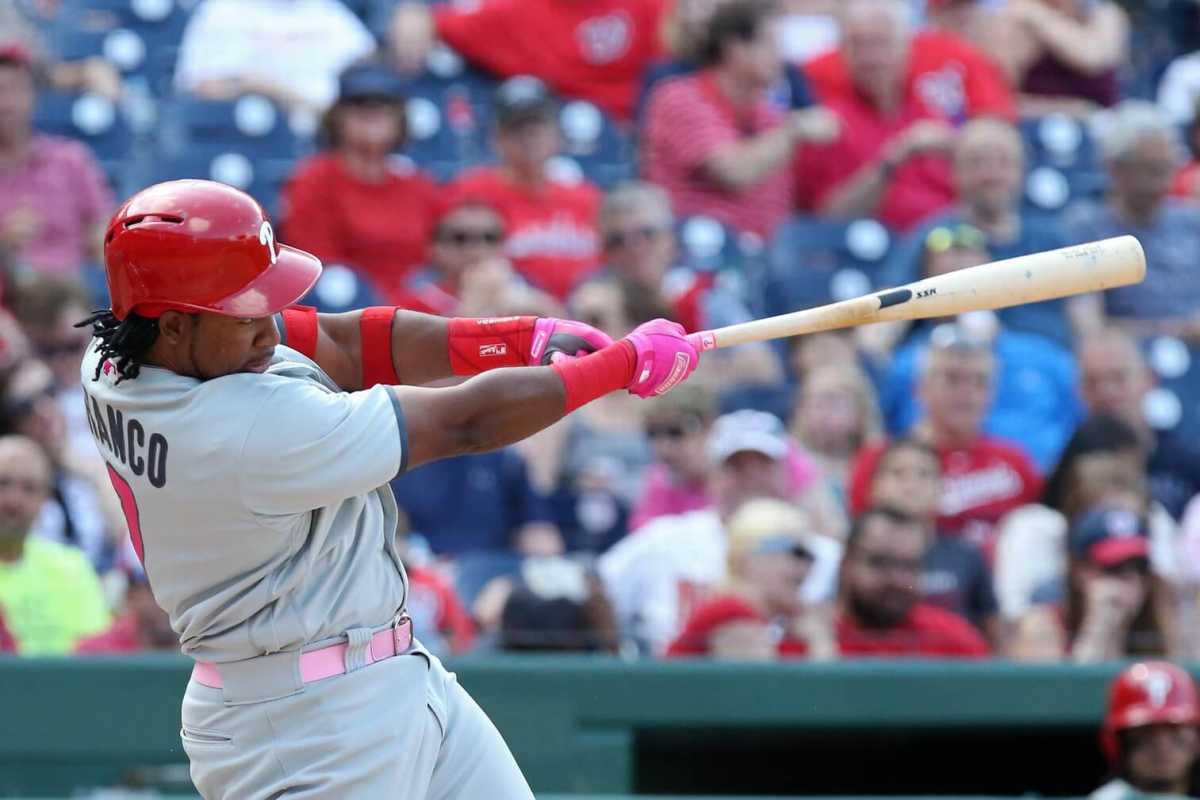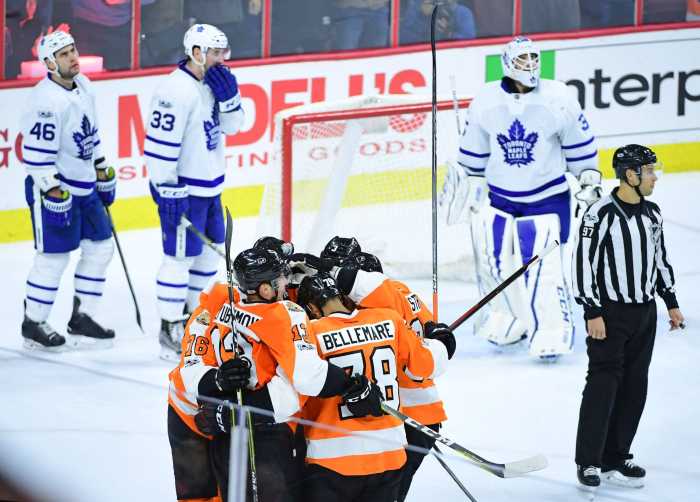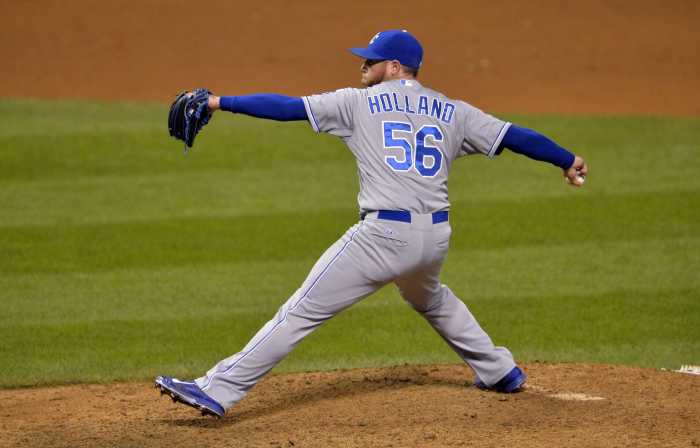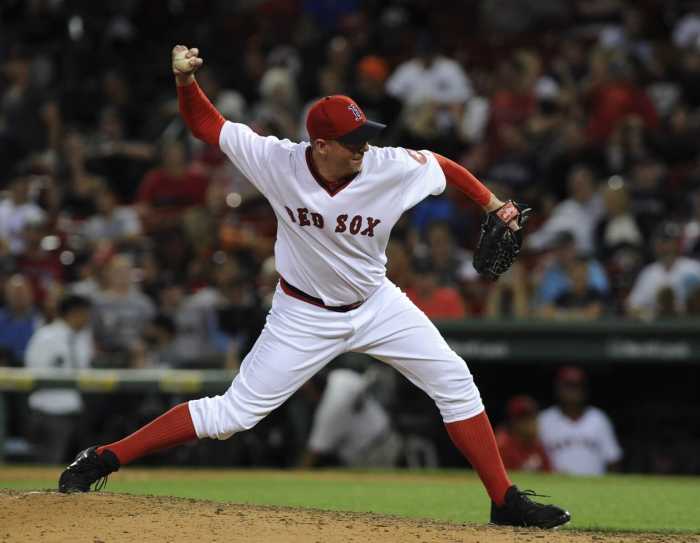In 2015, a 22-year-old Maikel Franco lit the Phillies world on fire when he burst onto the major league scene. In 80 games that season, Franco slashed .280/.343/.497 on his way to a very productive second half. In those 80 games, Franco drove in 50 runs while hitting 14 homeruns. It appeared the Phillies would have their cornerstone middle of the lineup hitter and hot corner staple for years to come.
Since then, however, things haven’t been all sunshine and bliss for the young third baseman, as the productivity has dipped in each of the last two seasons. Last year, Franco’s first full season in the bigs, he hit 25 bombs and drove in 88 runs on a team void of offense. With those numbers, many were able to give Franco a pass on the low average and even worse on base percentage. In 2016, Franco finished the year hitting .255, a 25 point dip from the year prior.
This year, things have gotten even worse. The righty seems to be pressing now that he’s starting to struggle for the first time in his major league career. Through the first 34 games, an admitted small sample size, Franco has really suffered at the plate to a slash line of .209/.278/.357. Those numbers are a far cry from his first half season with the Phillies.
So what’s the problem with Big Maik? Why are his numbers declining every year?
Many people with have many different takes on the matters, and it’s up for interpretation. But, here’s my thought process on Maikel Franco, and what the Phillies should do with him.
I want you to watch the next Phillies game you’re able to. I mean really, intently watch it. Watch for the intricacies of the game and not just for the home runs and diving plays. When you find yourself enveloped in the game, truly submersed in every pitch, you’ll find it’s not all that difficult to understand Franco’s issue at the plate. In my mind, it’s twofold.
First, Franco is really struggling for the first time in his very young Major League career. In order to understand why, let’s go back a ways. Like most Major Leaguers, Franco was likely the best player at every level he played, from little league to high school to the low levels of professional ball. His athleticism and a natural ability likely made it easy for coaches to under-develop him because of his talent. The thought process was likely one of, “Well, Maikel is hitting (insert absurd high school numbers), he’s fine.” And that thought process carries through with a player until he hits his first major setback.
What I’m getting at here is Franco appears to have never truly been taught how to hit. And it’s understandable why. Why waste the words and energy on a guy that’s mashing the ball at whatever level he’s playing at. He’s got to be perfectly fine, right? Not quite. Every hitter has learned how to make adjustments at the plate at every level. Some made the switch at the high school level that propelled them to success, while others had to learn how to falter in the bigs before figuring it out back in the minors. I’m not saying the Phillies should send Franco down, because that would be just taking it too far. But, Franco should be in the cages constantly with Matt Stairs to figure this thing out.
Secondly, the mechanics of Franco’s swing are all very, very wrong. One of the first things your dad or coach teaches you as a little boy about hitting is where to step your front foot. It sounds absurdly simple, but when the pitch is coming in, it often times isn’t. Franco is having a major stepping problem right now. Again, watch his at bats, and you’ll see a hitter who is trying to hit a 5-run homerun every time he steps to the plate. Obviously, that’s not a thing, but what I mean by that is, Franco is trying to hit the ball 400 feet every time he swings the bat. Because of that, he’s opening up his front leg by stepping toward the third base bag, which, in turn, opens up his hips, his torso and his shoulders, and finally, his head, making it nearly impossible to hit the ball anywhere other than on the inner third of the plate.
If I were an opposing pitching facing Franco, as a lefty, I’d thrown him nothing but changeups and two seamers away. If I were a righty, he’d see nothing but curveball and sliders away, until he proves he’s not going to continually pull his head anymore. If I, as a guy who played some high school ball, can figure this out, there’s no doubt Major League pitchers already have.
Until he fixes this major problem in his swing, Franco’s line will look much closer to this year’s stats than his first half season’s. With so much young talent set to come up from the minors relatively soon now, Franco will do well to figure things out quickly if he wants to remain on this roster as the rebuild turns into, hopefully, a playoff run.
Mandatory Credit: Geoff Burke-USA TODAY Sports






























